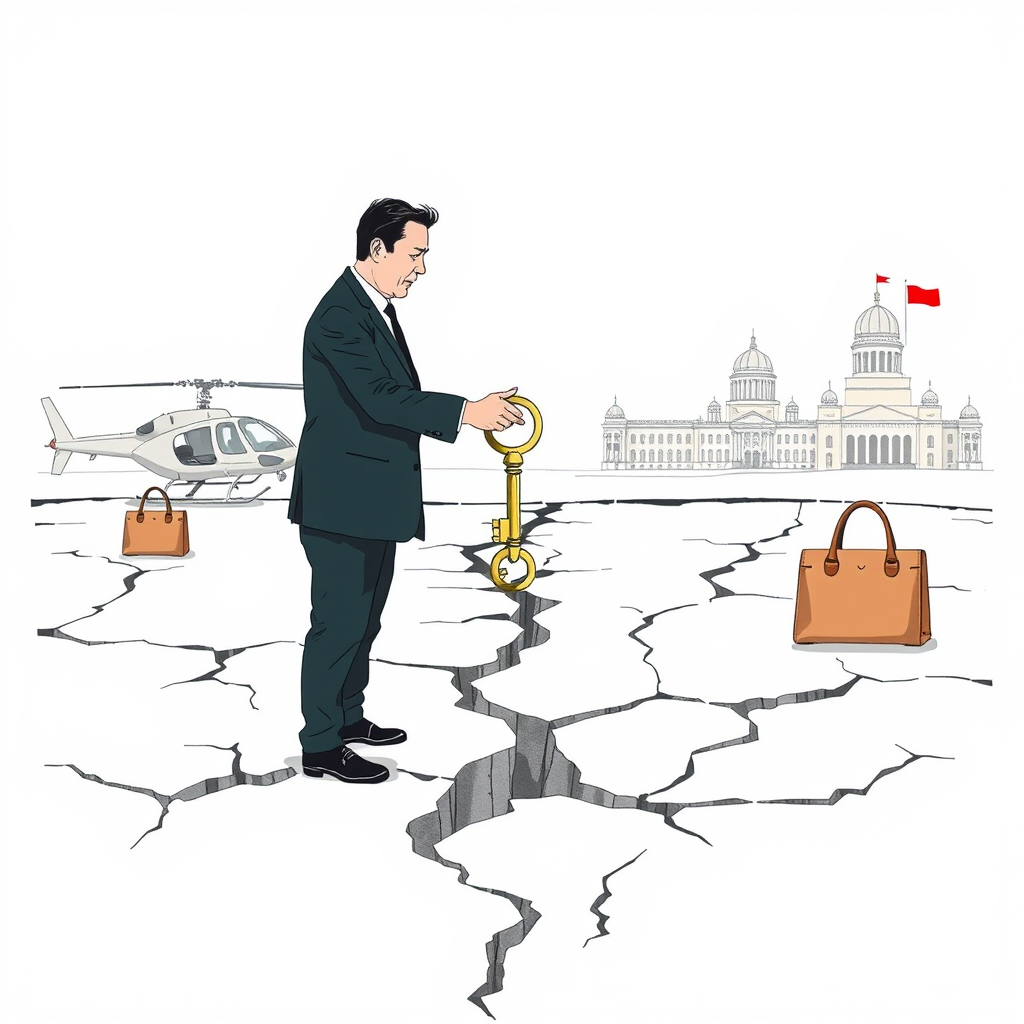Mongolia’s Prime Minister Resigns Amid Corruption Allegations

Mongolia’s Prime Minister, Oyun-Erdene Luvsannamsrain, has resigned following a parliamentary vote of no confidence, a dramatic turn stemming from accusations of corruption and lavish spending by his family. Oyun-Erdene, who came to power in 2021 on a platform of anti-corruption reform, now departs office amidst growing public discontent, highlighting the persistent challenges facing Mongolia’s fragile democracy.
The vote, held Monday, saw only 44 lawmakers support Oyun-Erdene, falling short of the 64 needed to maintain his position in the 126-seat parliament. This outcome effectively dissolves the coalition government he led, though his Mongolian People’s Party is expected to attempt forming a new one. Oyun-Erdene will remain in a caretaker role for up to 30 days while a successor is appointed.
The immediate catalyst for the no-confidence motion was public outrage over allegations surrounding his 23-year-old son, Temuulen. Reports surfaced detailing extravagant gifts – including helicopter rides, luxury cars, and designer goods – presented to Temuulen’s fiancée. These reports prompted a petition garnering over 59,000 signatures demanding Oyun-Erdene’s resignation, alongside broader concerns about inflation, unemployment, and poverty.
Oyun-Erdene’s office dismissed the allegations as a “smear” campaign, asserting his compliance with financial disclosure laws. He defended his son, claiming Temuulen did not rely on parental funds and that the Anti-Corruption Agency was investigating the matter. He even offered to resign if any irregularities were found in his own financial records.
However, the scandal tapped into a deeper vein of public frustration with corruption in Mongolia. The country consistently ranks poorly on Transparency International’s Corruption Perceptions Index (114th out of 180 in 2024), and watchdog groups like Freedom House describe corruption, particularly within the lucrative mining industry, as “endemic.” Recent cases, including a 2024 U.S. prosecution seeking forfeiture of luxury apartments purchased with illicit mining proceeds and a 2022 coal theft scandal costing the country an estimated $12 billion, underscore the scale of the problem.
Oyun-Erdene warned that a change in government could destabilize Mongolia’s young democracy, established after the collapse of the Soviet Union in the early 1990s. While acknowledging a need to focus more on domestic issues, he expressed concern that political instability could erode public trust in parliamentary rule.
This situation is a stark reminder that simply having anti-corruption rhetoric isn’t enough. Mongolia needs genuine systemic reforms, robust enforcement of existing laws, and a commitment to transparency at all levels of government. The resignation of Oyun-Erdene, while a direct result of accusations against his family, represents a broader crisis of confidence in Mongolia’s political institutions. Whether his successor can address these deep-seated issues and restore public trust remains to be seen, but the stakes for Mongolia’s democratic future are undeniably high. It’s a cautionary tale for other developing nations striving for good governance – that accountability must begin at the very top.